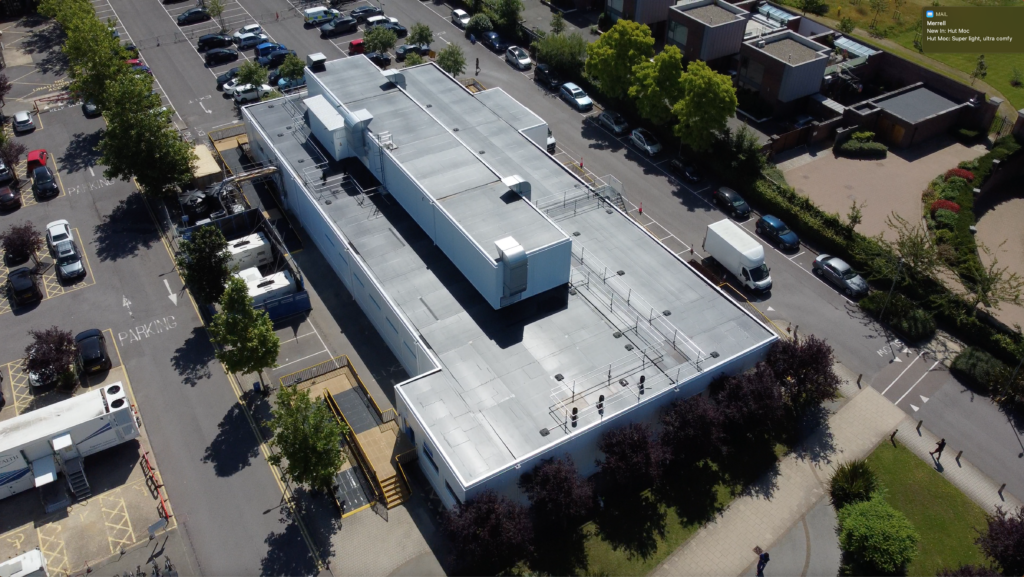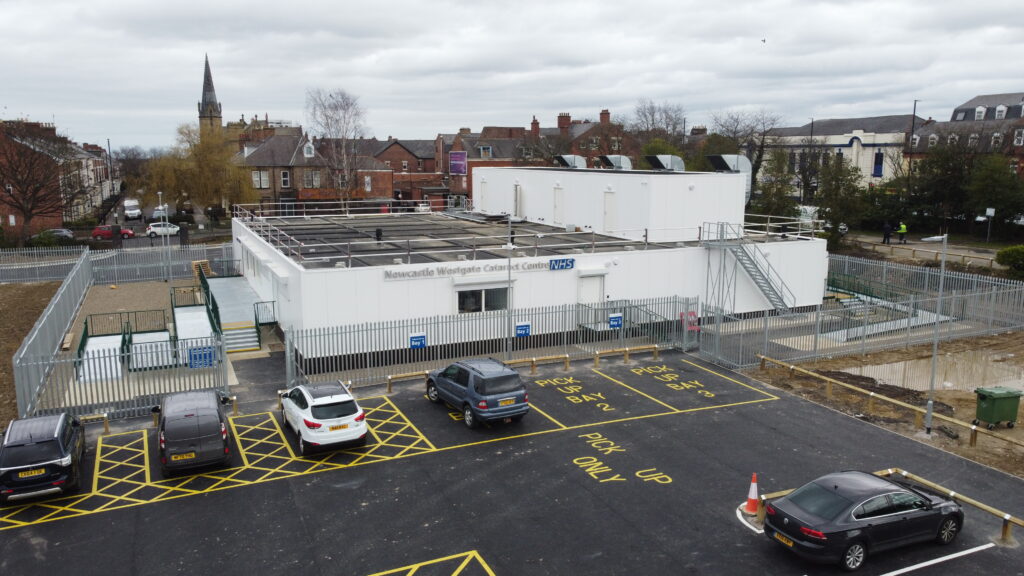It looks like you are in the United States
We have a different site (www.q-bital.com) which better suits your location
Vanguard Healthcare Solutions is pleased to share part two of a three-part series produced for the peer reviewed British Journal of Healthcare Management , exploring the practicalities involved in the delivery of more modular facilities in the NHS as a possible solution to reducing the backlog in elective care.
The first part of the series made the case for more modular facilities in the NHS, assessing the expansive benefits associated with them over traditional brick and mortar builds. Whilst the unmatched advantages of modular facilities are becoming widely acknowledged, complexities exist within the process of commissioning and delivering such builds, particularly linked to NHS estate ownership and cross-channel stakeholder communication, that the second part of this series explores in greater detail. Examining two in-depth case studies of Vanguard’s exemplary efforts - one in South West London and the other in Newcastle - the article recalls the circumstances, challenges, and choices that led the various trusts to favour modular solutions.
A considerable benefit many providers consider when commissioning a modular facility over a traditional build, is that the adaptable nature of the facilities means the often-arduous process of gaining planning permission is simplified. As the buildings can be relocated and repurposed, they are not subject to the same evaluation procedure as their brick and mortar alternatives, accelerating delivery.
Whilst this is a substantial advantage of modular facilities, issues with the intricate ownership structures of NHS estates can still arise that must be identified early on. It is therefore critical that communication between those commissioning the project, and those delivering it, is transparent and constant. In addition, the expertise of those within the healthcare industry means that the voices of staff and trust leaders, alongside the surgeons using the facilities, should be heard and must play a central role throughout. Maintaining communication with key stakeholders from the outset of a project, and working collaboratively on the designs, ensures the development of tailored solutions that meet the unique demands of the site and inevitably increases satisfaction with the result.
By way of example, as the world faced – and indeed continues to face - the challenges presented by the coronavirus, many providers emphasised the need to create facilities that streamlined services into one location and that had a single direction of patient flow to reduce the potential for the virus to spread. Delivering a linear site with a clinically effective patient flow system, like that at Queen Mary’s Hospital - worked to increase the safety and comfort of both patients and staff, achieving this ambition.
 Similarly, as the NHS faces a chronic staffing shortage alongside the elective care crisis, the desperate need to retain existing staff has been emphasised by the sector. By valuing the input of staff at Newcastle Westgate, Vanguard was able to ensure that staff welfare was prioritised, leading to the successful delivery of two wellbeing spaces for staff on this, accommodating this need.
Similarly, as the NHS faces a chronic staffing shortage alongside the elective care crisis, the desperate need to retain existing staff has been emphasised by the sector. By valuing the input of staff at Newcastle Westgate, Vanguard was able to ensure that staff welfare was prioritised, leading to the successful delivery of two wellbeing spaces for staff on this, accommodating this need.
Another factor that eases the delivery of modular facilities immensely is that the units can be prefabricated elsewhere. This feature enabled the site at Queen Mary’s Hospital to be delivered in just five months as the ground under the site could be levelled whilst the units were manufactured, avoiding possible delays. This illustrates how modular facilities are better suited to meeting the urgent needs of the NHS than brick and mortar builds, as accelerated delivery becomes increasingly crucial.
In the face of a global pandemic and the multifaceted nature of the NHS backlog, it is clear that the solution cannot be simple nor one-dimensional. However, by identifying early on the challenges involved in the planning and delivery of a modular facility, Vanguard has been able to create effective and futureproofed designs that can be rapidly delivered to an outstanding quality, with the sites in London and Newcastle already facilitating the reduction of waiting lists.
 To read the full article in the British Journal of Healthcare Management, please follow
this link
. You can also sign up to be notified when part three is published later this year.
To read the full article in the British Journal of Healthcare Management, please follow
this link
. You can also sign up to be notified when part three is published later this year.



Vanguard Healthcare Solutions
Unit 1144 Regent Court, The Square, Gloucester Business Park, Gloucester, GL3 4AD

We have a different site (www.q-bital.com) which better suits your location